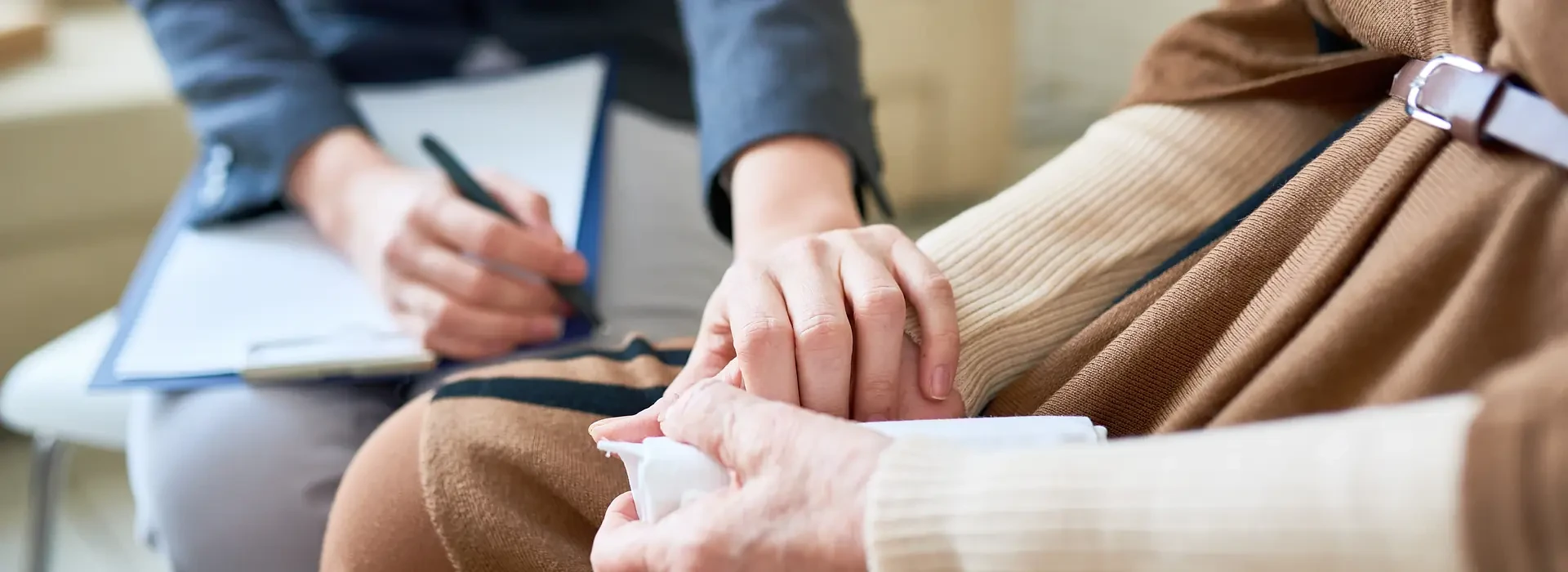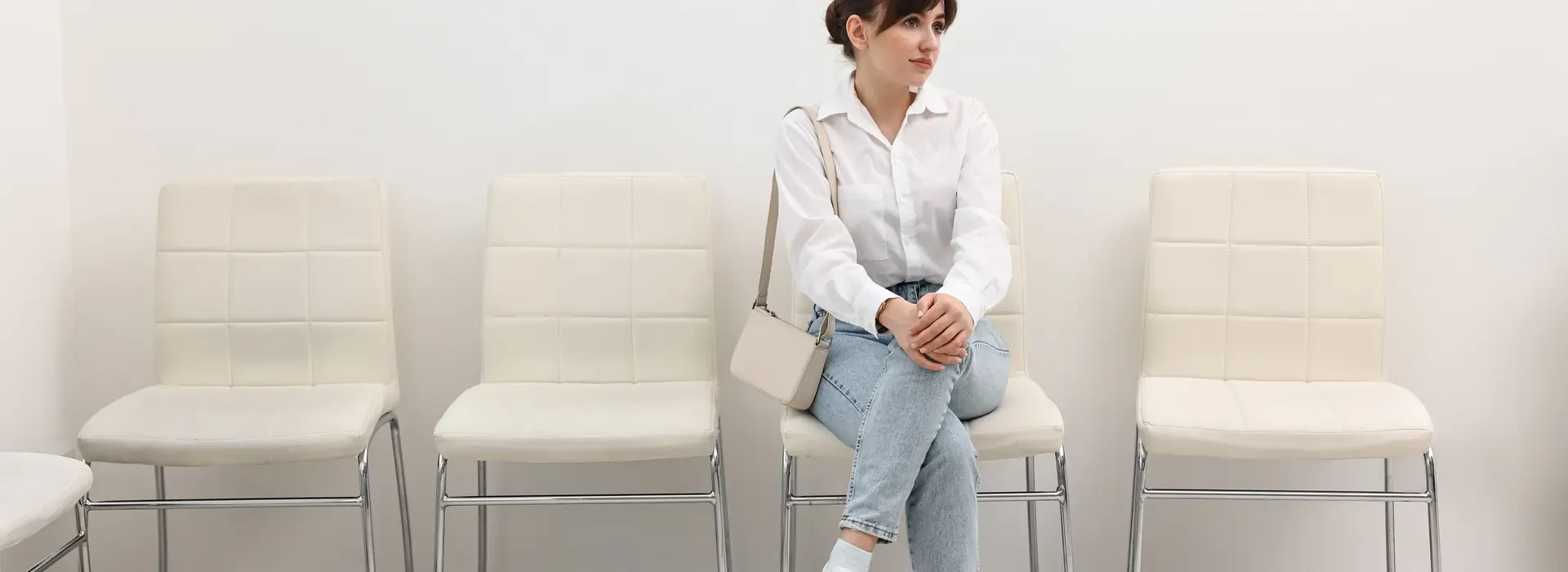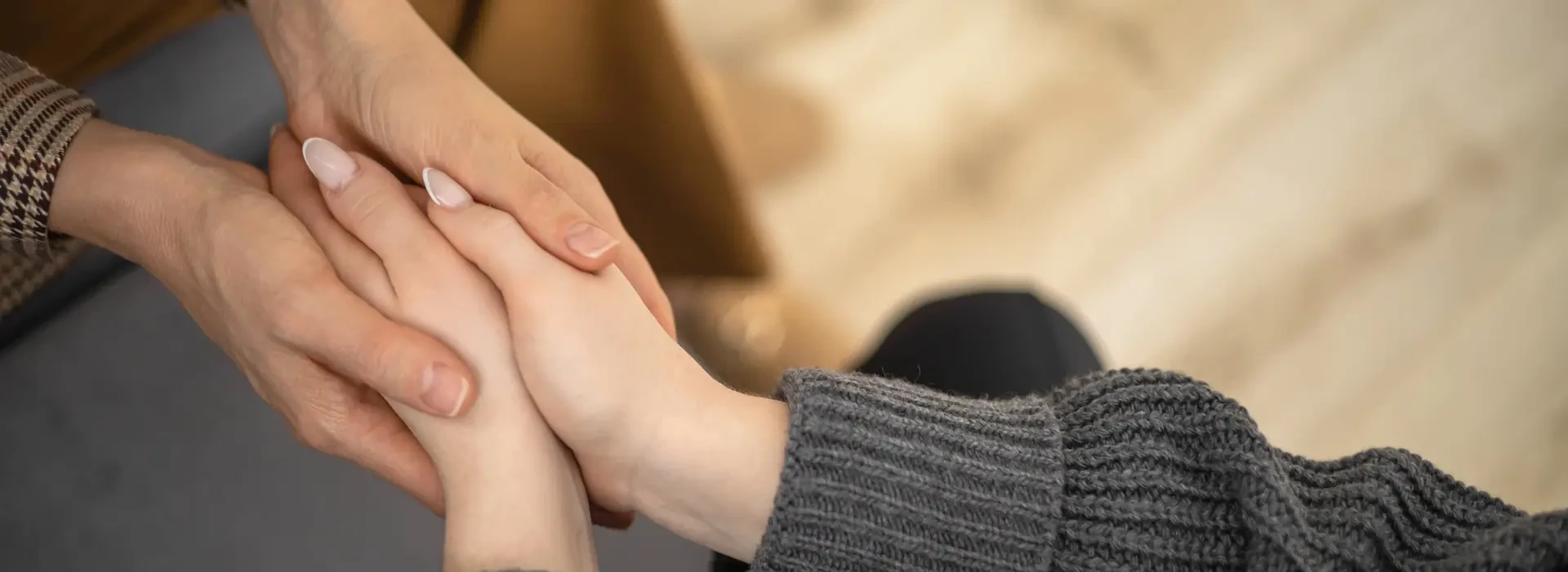If you struggle with anxiety, you might feel like you are alone or that no one understands what you are going through. Group therapy brings people together who share similar experiences to manage anxious thoughts and feelings. By joining group therapy for anxiety, you can learn coping techniques, build confidence, and discover that others truly understand your challenges.
What Is Group Therapy?
Group therapy brings together a small number of people, often led by a mental health professional, to meet regularly and work through specific issues. In these sessions, participants discuss their thoughts and feelings, learn from one another, and practise new ways of coping.
Groups may range from 5 to 12 people. Meetings can be in person or online. The therapist guides discussions, manages group rules, and introduces activities to facilitate a productive group experience. These can include role-play, guided discussions, or relaxation exercises.
Confidentiality and mutual respect are emphasised in every session. Common rules include listening without judging, keeping what is said within the group, and giving everyone a turn to speak. This safe and supportive environment helps you feel accepted and less alone.
How Does Group Therapy for Anxiety Work?
Group therapy uses evidence-based methods to help you understand and manage your anxiety. Learning about anxiety and talking openly about your experiences can make symptoms feel less overwhelming.
You can benefit from practical exercises, such as role-playing social situations or practising relaxation methods, like progressive muscle relaxation. These exercises help you gain confidence and learn to handle anxiety in real-world situations. Being surrounded by others with similar struggles encourages sharing tips, encouragement, and solutions.
Many people find that this type of therapy creates a sense of belonging that individual therapy may not offer. It helps you challenge unhelpful beliefs, reduce feelings of isolation, and build social connections.
In one study, researchers reviewed existing evidence to see if peer support from people with lived experience of mental health issues helps young people (ages 14–24) with anxiety and depression.
They searched multiple databases and found nine randomised controlled trials involving 2,003 participants. Out of all the studies they looked at, one showed that peer support helped with both anxiety and depression.
Differences Between Group and Individual Therapy
Individual therapy involves just you and a qualified therapist or psychologist, focusing on your personal history, feelings, behaviours, and specific anxiety symptoms.
This one-to-one approach allows for highly personalised treatment for anxiety, including evidence-based options and other psychological treatments. You work at your own pace, explore negative thoughts, and develop coping strategies and techniques tailored to your needs.
Group therapy, on the other hand, brings together people with anxiety or similar issues in a safe, confidential space. These therapy groups are guided by a mental health professional and encourage group members to share their experiences.
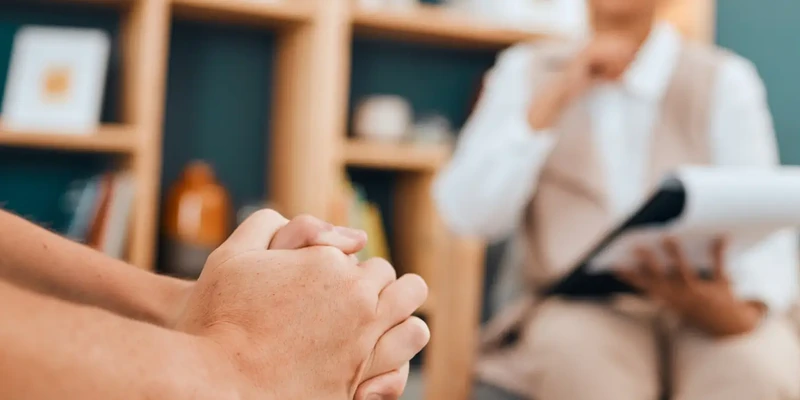
Types of Group Therapy for Anxiety
Group therapy for anxiety can take several structured and group-based forms. Each approach has unique strategies and techniques to address anxiety symptoms and improve quality of life.
Cognitive Behavioural Therapy Groups (CBT Groups)
Group cognitive behavioural therapy (CBT) is one of the most widely used forms of psychotherapy for anxiety. They apply principles from psychology to identify and change the thoughts and behaviours that keep anxiety going.
A trained therapist or psychologist guides you through CBT techniques, often using role-play, homework, and a workbook to reinforce learning.
CBT groups are highly structured and give you the advantage of practising coping strategies in real time, with feedback from group members facing similar issues. They are effective for a range of disorders, including generalised anxiety disorder, social anxiety, and panic disorder.
Research shows that group CBT can reduce symptom severity, prevent relapse, and improve relationships with others.
Support Groups
Support groups for anxiety are a more flexible form of talking therapy, often peer-led but sometimes facilitated by healthcare professionals. These sessions create a confidential environment where people can share experiences, exchange coping strategies, and learn from others with similar issues.
Unlike structured therapies, support groups are more flexible in format. You are encouraged to speak openly about your challenges in a non-judgemental environment. You may also learn from others about coping strategies, local resources, or what to expect from treatment.
Psychoeducational Groups
Psychoeducational groups focus on teaching you about anxiety and how it affects your mind and body. The sessions include information on symptoms, causes, and triggers. Leaders in these groups often use presentations, discussions, and handouts.
You might learn techniques such as relaxation, healthy lifestyle habits, and effective communication. Groups may include question-and-answer times to address your specific concerns. The goal is to equip you with information, skills, and resources so you can better manage anxiety.
These groups provide a chance to gain knowledge in a safe, supportive setting. Some psychoeducational sessions also include family members, so your loved ones can learn how to support you.
Exposure-Based Therapy Groups
Exposure-based therapy groups are a clinical approach that helps you face anxiety-triggering situations in a gradual, controlled way. The main idea is to reduce fear by getting used to the situations you usually avoid. These groups are often structured and led by a skilled therapist or psychologist.
You might be guided through imagined or real-life exposures, starting with easier tasks and moving up to more difficult ones. Members often create a “fear ladder” and take small steps together to conquer their worries.
Exposure-based groups work well for social anxiety, phobias, and panic disorders. By practising exposure with others, you can gain courage and learn that anxiety can reduce over time. This method helps you build confidence and independence in daily life.
Benefits of Group Therapy for People with Anxiety
Taking part in therapy in a group setting allows you to connect with others who truly understand what you are experiencing. This shared environment encourages greater comfort and openness. You gain support from both peers and professionals.
Group sessions also provide a safe place to practise social skills. Activities often focus on enhancing communication and building confidence. This can help reduce feelings of isolation and increase self-awareness. Many groups use evidence-based techniques that are proven to help with anxiety.
Key benefits include:
- Feeling less alone with your worries
- Learning practical coping methods
- Receiving feedback from people with similar experiences
- Developing new skills in a supportive space
Therapist-led groups give you structured support and guidance that you may not find in more casual support groups.
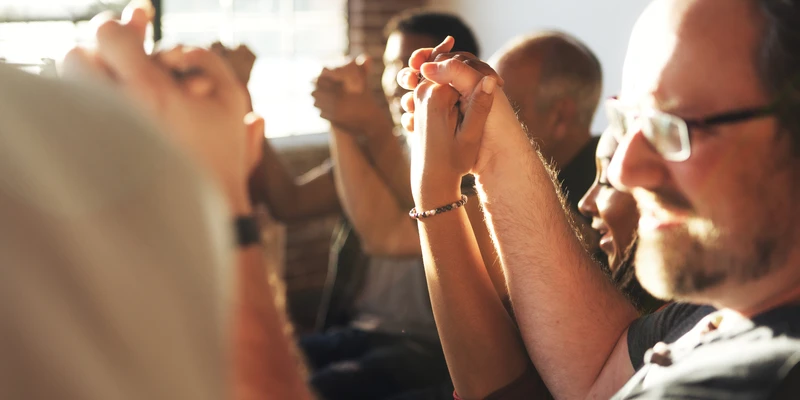
The Link Between Anxiety and Addiction
Anxiety and addiction often go hand in hand, with each condition feeding into the other. People with anxiety symptoms may turn to alcohol or drugs for short-term relief, but this can lead to dependence and make anxiety worse over time.
This is known as a dual diagnosis, where both a mental health condition and a substance use disorder occur together and need to be treated at the same time. Conditions like social phobia, generalised anxiety disorder, or post-traumatic stress disorder are common in those with substance use issues.
Effective treatment addresses both together. Through a group setting, members have a safe place to share their experiences and get support from others facing similar issues.
Getting Started With Group Therapy for Anxiety and Depression
Joining a group for anxiety can help reduce feelings of isolation, offer practical strategies, and build supportive connections with others who understand your experience. Here’s how you can begin the process, know what participation is like, and make the most of each session.
Finding the Right Group
Look for a group that meets your needs by considering the size, focus, and structure. Some groups target certain types of anxiety, such as social anxiety or generalised anxiety disorder, while others offer support for any anxiety problem. If you want in-depth support, search for structured groups led by a qualified therapist.
Start by talking to your GP or current mental health professional, as they can suggest reliable options near you. You may also find listings at local clinics, community centres, or online directories.
Be sure to check if the group is open (anyone can join) or closed (membership is set at the start). The atmosphere should feel safe and confidential. Reviews or recommendations can also help you decide.
What to Expect During Sessions
Group sessions usually last about one to two hours and take place weekly. A trained leader or therapist guides the session. Activities might include discussing coping skills, practising relaxation techniques, or sharing personal challenges and successes.
You are encouraged to listen and share at your own pace; there is no pressure to speak more than you feel comfortable. Many groups use cognitive-behavioural strategies and progressive muscle relaxation as part of their routine.
Common rules cover confidentiality, respecting others, and attending regularly. Each session builds trust, which may make it easier to talk and try out new skills. The group environment is meant to feel supportive, not judgmental.
Tips for Maximising Therapy Outcomes
To get the most benefit, try to attend all sessions and participate as much as you can. Set small goals before each meeting, like sharing a thought or practising a tool discussed in the session. Writing down notes or reflections after each group can help reinforce what you’ve learnt.
Listening to others’ stories can reveal new ways to manage anxiety. Be honest about your feelings, but remember it’s fine to take small steps if you’re nervous about sharing. Consistency is key; progress may take time, but staying committed helps you notice changes.
If you have questions between sessions, make note of them to bring up next time. Taking an active but patient approach can help you build new confidence and skills, both inside and outside the group.
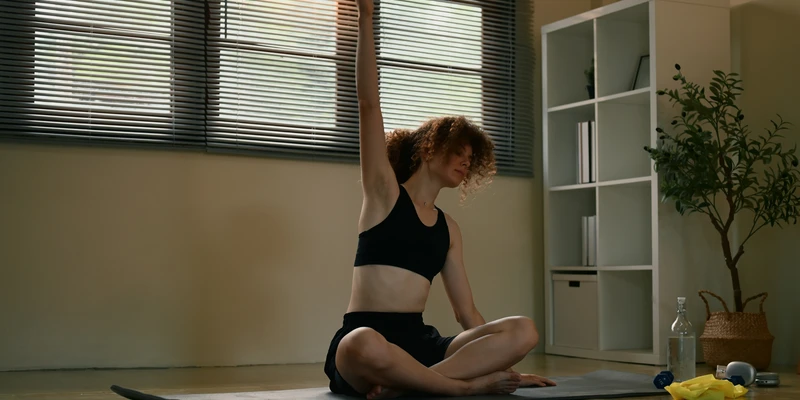
Get Support for Anxiety at Liberty Home Clinic
Group counselling offers a safe space and the chance to connect with people who truly understand what you’re going through. You’ll not only learn new techniques from a trained therapist but also hear real, honest stories from others who have faced similar issues.
Every session is a step toward reducing anxiety, rebuilding confidence, and feeling less alone in your journey. At Liberty Home Clinic, we provide a confidential space where you can get anxiety treatment and support.
If you’ve been searching for a place where people are willing to share and help you feel better, Liberty Home Clinic is here for you. Reach out to us today.
Frequently Asked Questions
What activities are typically included in group sessions for anxiety?
Activities might include mindfulness exercises, guided relaxation, and sharing personal stories. You may also practise role-play or group discussions to explore thoughts and reactions. Learning coping strategies and problem-solving together helps everyone benefit from different perspectives.
Can you provide guidance on how to find local group counselling sessions for anxiety?
Start by asking your GP or mental health professional for recommendations. Local mental health charities and organisations, such as Anxiety UK, often run support groups. Check community centres, counselling services, and university health departments. Online directories and NHS services may also list local group sessions.
What can one expect from an initial group therapy session for anxiety management?
At your first session, the therapist usually explains the purpose and rules of the group. You'll meet the other members and often share your reasons for attending. The atmosphere aims to be supportive and confidential, helping you feel safe to participate.
How does group therapy work for children and young people with anxiety disorders?
Group therapy for anxiety can be adapted for children and young people, including those with anxiety disorders in children or disorders in children and adolescents. These group-based sessions often include age-appropriate psychological treatments, interactive activities, and opportunities for family involvement.
Are there NHS options for group-based anxiety treatment?
The NHS offers a range of support groups for anxiety, including CBT group programmes and focused therapy options for anxiety or depression. These sessions are often led by trained healthcare professionals such as psychologists, therapists, or psychiatry specialists.
Can group therapy help after previous treatment hasn’t worked?
Yes, if you’ve tried other treatments and still struggle with anxiety symptoms, joining a group counselling programme for anxiety can give you a fresh perspective. Group-based approaches allow you to hear how others handle the same issues, practise new strategies, and rebuild confidence in a supportive setting.


